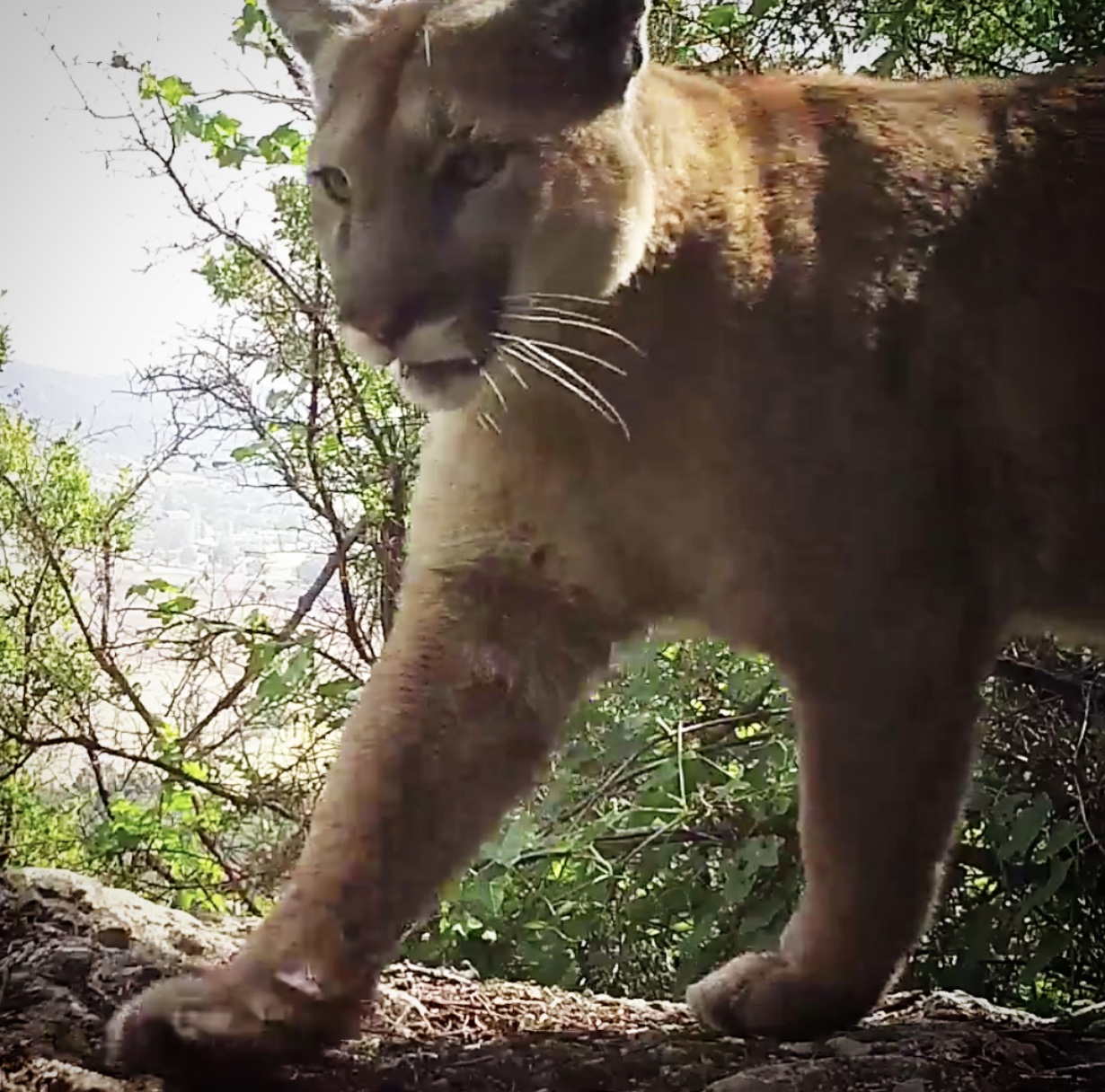News Release
You are viewing ARCHIVED content published online before January 20, 2025.
Please note that this content is NOT UPDATED, and links may not work. For current information,
visit https://www.nps.gov/aboutus/news/index.htm.

|
Subscribe
|
Contact: Ana Beatriz Cholo, 805-750-9356 (cell); 805-370-2385 (office)
THOUSAND OAKS, Calif. – P-56, a 4 to 5-year-old male mountain lion that was living in the western Santa Monica Mountains south of the 101 Freeway, was recently killed under state depredation law. This marks the first time that a radio-collared mountain lion has been killed under a California Department of Fish & Wildlife (CDFW) depredation permit in the Santa Monica Mountains.Since 1990, mountain lion hunting has been banned in California, and mountain lions are designated by the state as a “specially protected mammal.” However, a mountain lion may still be killed if it harms pets or livestock and the property owner requests a depredation permit from CDFW.
A “three-strike” policy was implemented by CDFW in December 2017 that adds protection to the mountain lion populations in the Santa Monica Mountains and Santa Ana Mountains, where there is another isolated and at-risk population. In these areas, after a mountain lion has killed or injured livestock or pets, the property owner must first use non-lethal means to deter the lion before a lethal permit is issued.
According to officials at CDFW, who investigate depredation incidents, in this instance the landowner implemented measures including bringing in as many livestock as possible, penning any remaining livestock close to the barn and houses, and utilizing trained guard dogs, hot wire fencing, motion activated lights and auditory (radio) hazing. The property owner took these measures even though incidents involving P-56 took place outside the boundary of the current geographic area for the three-strikes policy. Over two years, this property owner had nine depredation incidents resulting in the loss of 12 animals.
National Park Service biologists were informed that P-56 was killed on January 27. Mountain lions in the Santa Monica Mountains have been a part of an almost 18-year-long NPS study that looks at how the small population is faring in a highly fragmented region. Although NPS is conducting research on the local mountain lion population, CDFW is responsible for managing the state's wildlife, including mountain lions.
“The loss of a breeding male is a concern for the study, especially when the population is already very small,” said Jeff Sikich, the lead field biologist for the project. “There are always animals out there that are not being tracked. Currently, there is only one adult male in the Santa Monica Mountains that we are tracking and that is P-63.”
P-56 was first caught and outfitted with a GPS tracking collar in April 2017, a few days after young male P-55 was captured in the same spot. They are suspected to be brothers. P-56 was also the suspected father of P-70, P-71, P-72 and P-73, based on time that he spent traveling with adult female P-19.
CDFW has a number of recommendations for keeping mountain lions wild on their website https://wildlife.ca.gov/Keep-Me-Wild/Lion, which include confining livestock in a full enclosure at night.
Other suggestions include using properly trained guard dogs and keeping domestic pets indoors at night. If they are left outside, they should be kept in a mountain lion-proof enclosure. In numerous instances where these measures were taken, both in this region and across the state, further depredations have been eliminated.
Santa Monica Mountains National Recreation Area (SMMNRA) is the largest urban national park in the country, encompassing more than 150,000 acres of mountains and coastline in Ventura and Los Angeles counties. A unit of the National Park System, it comprises a seamless network of local, state, and federal parks interwoven with private lands and communities. As one of only five Mediterranean ecosystems in the world, SMMNRA preserves the rich biological diversity of more than 450 animal species and 26 distinct plant communities. For more information, visit www.nps.gov/samo.
###
